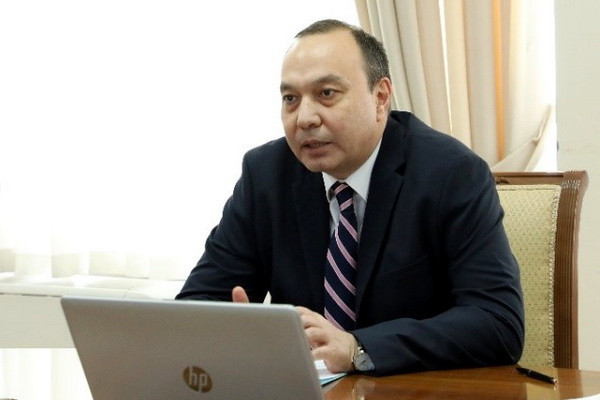
Director of ISMI: today all conditions have been formed for bringing Uzbek-Hungarian relations to the level of strategic partnership
Tashkent, Uzbekistan (UzDaily.com) -- Today all conditions have been formed for bringing Uzbek-Hungarian relations to the level of strategic partnership. This opinion was expressed by the Director of the Institute for Strategic and Interregional Studies under the President of the Republic of Uzbekistan Eldor Aripov, opening the first Uzbek-Hungarian online conference of experts on the topic: "Uzbekistan and Hungary: prospects for bilateral and interregional cooperation."
According to Eldor Aripov, such a high assessment is due to the adoption by the heads of the two states of a joint declaration on strategic partnership between Uzbekistan and Hungary, as well as the signing of more than 10 documents aimed at expanding multifaceted bilateral cooperation.
As the director of ISMI emphasized, today all conditions have been formed for bringing relations to such a serious level of strategic partnership.
First, there is strong political support from the heads of state who intend to personally promote comprehensive ties between the two countries. This is a very important aspect that guarantees the constant filling of the cooperation agenda with new "breakthrough" directions.
Secondly, the trade turnover between our countries is growing from year to year, adding almost every year. Thus, over the past four years, the level of bilateral trade has almost tripled. This suggests that there is potential and, most importantly, high interest for increasing these indicators at times.
Thirdly, as Prime Minister Orban noted at the talks: "flagship projects have been identified that will be able to pull the development of entire industries." Particularly noteworthy is the participation of the Hungarian side in reforming the banking sector of Uzbekistan, implementing pilot projects in the Samarkand and Jizzakh regions to introduce the Hungarian experience in modernizing the economy and social sphere, industrializing agriculture, and increasing export potential. Such projects will open the doors for increasing the inflow of investments and technologies from Hungary.
Fourth, the most important basis for the development of cultural and humanitarian ties between the two peoples has been created. Particularly positive is the introduction by the Hungarian side of quotas for training up to 100 Uzbek students in Hungary annually, as well as the opening of a branch of Debrecen University in Tashkent.
It is noteworthy that the leaders of the countries intend to build not only bilateral relations, but also to expand the formats of multilateral interaction. Prime Minister Viktor Orban proposed to establish regular cooperation in the format of the Visegrad Group and Central Asia during the presidency of Budapest in the Quartet since July this year.
President of Uzbekistan Shavkat Mirziyoyev, who is the main initiator of the development of regional cooperation in Central Asia, immediately supported the building up of contacts between these two similar associations.
In general, it is clear from the speeches of the leaders of the countries that the parties share a similar philosophy and understand each other well. We can say they speak the same language. The presence of a community of interests in the difficult conditions of the world actualizes the need for expert interaction and support of the cooperation process with deep analytical developments. In this regard, it was timely to sign a memorandum of cooperation between IISR and the Institute of International Relations and Trade of Hungary, which will give the previously established contacts a greater consistency. With his conclusion, the two think tanks will be able to move on to conducting joint research and organizing scientific events.
On the cooperation agenda are studies on the application of Hungary’s experience in carrying out socio-economic reforms in Uzbekistan, developing strategies to support micro, small and medium-sized businesses, and water resources management. The creation of a stable mechanism of cooperation between the two institutes, which is planned with Hungarian colleagues, is also important. Already, joint research projects and a number of practical activities are outlined.
Ambassador of Hungary to Uzbekistan Peter Santo, Ambassador of Uzbekistan to Austria with accreditation in Hungary Abat Fayzullaev, head of the Turkic Council in Hungary Janos Howari, took part in the event, organized by ISMI together with the leading Hungarian analytical center - Institute of Foreign Affairs and Trade under the Hungarian Foreign Ministry, director of the Hungarian Institute of Foreign Affairs and Trade under the Ministry of Foreign Affairs Marton Ugroshdi, as well as experts from the "think tanks" of the two countries.
The Institute of International Relations and Trade of the Hungarian Foreign Ministry is the country’s leading research institution. It conducts an in-depth study of security policy, energy, industry and technology. The institute’s particular attention is focused on issues of European integration, economics and trade policy, climate change and sustainable development. The Institute works closely with the Hungarian Export Promotion Agency and the Hungarian Investment Promotion Agency, as well as foreign research institutes and universities.